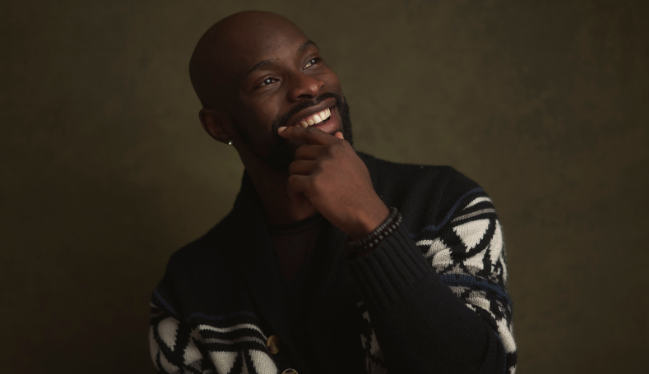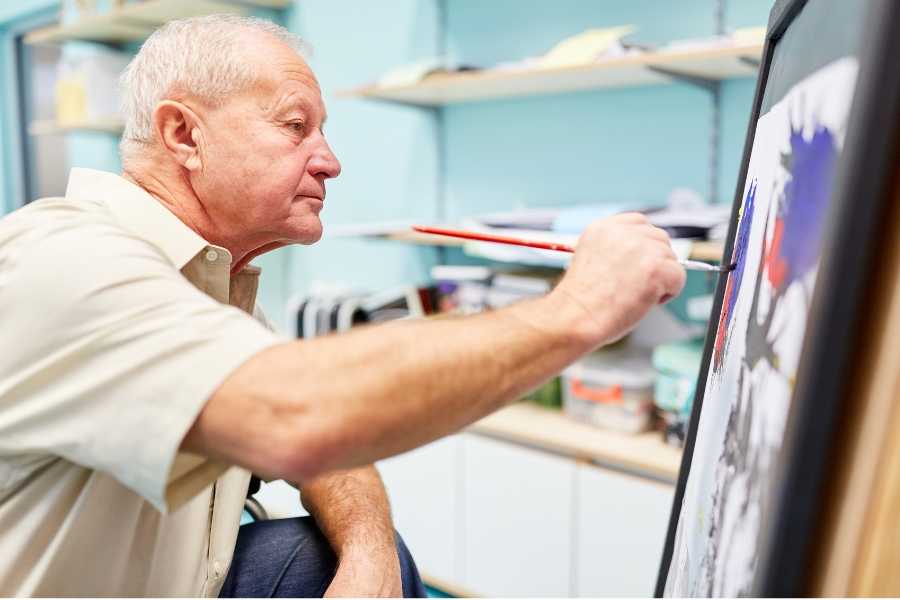This article originally appeared on 04.16.18
For about a week before the 2018 Boston Marathon, news outlets around the country were busy freaking out about the idea of transgender athletes competing.
Specifically, the worry seemed to be that trans women (people who transitioned from male to female) would have an unfair advantage over cisgender (non-trans) women. Right-wing commentator and anti-trans ideologue Ben Shapiro painted the decision as a type of slippery slope that will eventually lead to the abolition of gender categories as a whole, saying, “Biological women will never win a marathon — ever — in history because men are faster than women on average.”
Do Shapiro and others skeptical about the idea of trans women competing with other women in sporting events have a point? Not really.
I finally found a few minutes to write a bit, in my own words, about all this media coverage around trans women running #BostonMarathon. http://www.amelia.run/posts/2018-04-10-boston-marathon-media/ … #runchatpic.twitter.com/wNoc5A0a9p
If trans women have such an advantage, why haven’t there been any truly dominant trans athletes? Because they don’t.
A few years back, I wrote a fairly detailed breakdown of trans athletes’ fight to be able to compete in the sports they love for Vice Sports. The article, “Heroes, Martyrs, and Myths: The Battle for the Rights of Transgender Athletes,” centered around Minnesota’s struggle to determine how to handle trans athletes. But the research remains relevant whenever these sorts of controversies arise — which, sadly, is pretty often.
The argument goes like this: Because cisgender (or those who identify with the gender assigned to them at birth) boys and men are typically stronger and faster than cisgender girls and women, transgender girls and women should have to compete against cisgender boys and men.
But this argument leaves out the important fact that trans girls and women are not the same as cis boys and men, especially trans girls and women who’ve undergone hormone replacement therapy.
In 1976, a trans tennis player by the name of Reneé Richards wanted to compete in the women’s division at the U.S. Open. At the time, a number of people argued that she had an unfair advantage and would dominate the women’s circuit.
A quick look at the stats shows that’s not the case. Prior to her transition, Richards competed in the men’s division, where she was fairly mediocre (two wins, five losses). Post-transition, competing against women, she was … also fairly mediocre (66 wins, 110 losses).
Since then, a handful of openly trans athletes have surfaced, almost all with the same “unfair advantage” bogeyman attached to them. Trans mixed martial arts fighter Fallon Fox was never as dominant as people warned (to date, she has a career record of four wins and one loss), never making it to the UFC. In fact, in Fox’s only fight against a fighter who would eventually compete in the UFC, she was knocked out in the third round.
There are no trans LeBron Jameses dominating the WNBA or trans Cristiano Ronaldos racking up Women’s World Cup victories. There’s a good reason for that: Despite concerns, trans women really don’t have an athletic advantage.
Hormones play a big role in determining what sort of advantage an athlete has — or doesn’t have.
“Research suggests that androgen deprivation and cross sex hormone treatment in male-to-female transsexuals reduces muscle mass,” said Dr. Eric Vilain, professor and director of the Center for Gender-Based Biology and Chief Medical Genetics Department of Pediatrics at UCLA in a 2010 report. “Accordingly, one year of hormone therapy is an appropriate transitional time before a male-to-female student-athlete competes on a women’s team.”
In other words, after about a year on hormones, pretty much any advantage a trans woman might have had will be wiped out.
This is why an increasing number of entities are establishing reasonable rules when it comes to determining a trans athlete’s eligibility. The NCAA and International Olympic Committee both require that trans women undergo hormone replacement therapy before competing in women’s divisions.
Anti-trans policies aimed at trans women often wind up creating situations where actual advantages exist — for trans men.
In both 2017 and 2018, high school wrestler Mack Beggs took home the state championship in the girls division. Many say Beggs had an unfair advantage, and they’re absolutely right: Beggs is a trans boy who takes testosterone to treat his gender dysphoria. He wanted to compete against other boys, but a Texas state rule says that athletes must compete against the gender listed on their birth certificate.
Beggs was left with an impossible decision: compete against girls, end medical treatment, or quit the sport he loves. He chose to compete. After all, it’s not his fault that ridiculous rules forced him into a division where he doesn’t belong, and he really shouldn’t have to stop his medical treatment or quit a sport just because of it. Trans athlete Chris Mosier came to Beggs’ defense on Twitter.
Mack Beggs is a just kid who wants to compete in the sport he loves. Texas gave him 2 options: wrestle with girls or quit. He wrestles.
Originally, The Federalist, a hard-right anti-trans blog argued that Beggs should compete against other boys — because they thought he was a trans girl (emphasis mine):
“There’s also a distinct athletic advantage for men who transition to women and play on high school and collegiate teams. It’s so clear one would have to be blind not to see how fraudulent this is, given men’s innately greater physical strength compared to women. Transgender male-to-female boy Mack Beggs made waves earlier this year because he won two girls’ wrestling championships in Texas. It’s easy to see why, as a person born male, complete with the testosterone and build of a biological boy, he might have an advantage over female competitors in wrestling.”
Once they realized they’d accidentally made the point advocates for trans rights had been making, the site quickly tried to revamp its argument, saying it wasn’t about “innate” characteristics at all, but the advantage or lack thereof that hormone replacement therapy offers:
“There’s also a distinct athletic advantage for men who transition to women and play on high school and collegiate teams. It’s so clear one would have to be blind not to see how fraudulent this is, given men’s innately greater physical strength compared to women. Female-to-male transgender Mack Beggs made waves earlier this year because she won two girls’ wrestling championships in Texas while taking testosterone. It’s easy to see why testosterone injections might give someone an advantage over female competitors in wrestling.”
(Again, emphasis mine up there. Also, a note that the Federalist’s style guide appears to call for the intentional misgendering of trans people, which is why Beggs is referred to as “she” here.)
In other words, many of those who make these types of arguments against trans people competing in sports clearly aren’t doing so in good faith.
As for the Boston Marathon, those worried about trans women dominating the women’s division will be relieved to know that no, a trans woman did not win.
Yet another false alarm in the never-ending quest to “chicken little” the oncoming trans-athlete-apocalypse. In all seriousness, though, huge congrats to Desi Linden, who, while not trans, is an amazing athlete and the winner of the 2018 Boston Marathon.






































